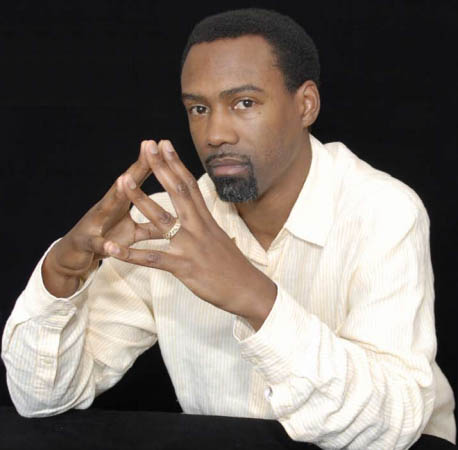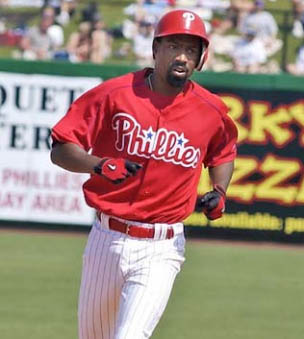Interview by Noah Graff
Today’s Machining World Archive June 2010 Volume 6 Issue 05

After attending the University of Pennsylvania for engineering, Doug Glanville played centerfield for the Chicago Cubs and Philadelphia Phillies from 1996 to 2004, accumulating 1100 hits and a 293-game errorless streak. He is currently a baseball commentator for ESPN, has an op-ed column in the New York Times and just released his new book, The Game from Where I Stand, a personal account of day-to-day life in the Big-Leagues.
What was it like to be traded to the Phillies from the Cubs after being in Chicago for just a year?
DG: It was two days before Christmas. I was in my basement and had recently heard that my grandfather had passed away. The phone rang and they said, “Hey, we’ve got news for you. We’ve just traded you to Philadelphia. Good luck.” That was about it. Ed Lynch, the Cubs GM, called me. I was disappointed. I had come up through the minors in the Cubs system, so I felt that after all I had to go through to get there, I’d stay awhile. I knew it was a better opportunity for me to play every day in Philly, so I was fine with that, but it was hard.
Are players constantly paranoid that they could go into a slump and lose their starting job?
DG: Yeah, I think there’s paranoia. It’s not only about [slumps], it’s the general cultural issues players face, like being replaced or sent down or traded. You’re always looking over your shoulder on some level. You try to play and look forward but when you’re struggling, it’s a lot harder to do that. You’re always worried about losing an edge, a step, a job, getting old. And change happens very quickly in Major League Baseball for sure.
Did your teammates look at you strangely, coming from an Ivy League university?
DG: The thing about baseball that I find fascinating and I enjoy is that it’s a little bit of Bull Durham. When you’re in the Minor Leagues, there are a lot of restrictions and you may be labeled or categorized. But in the Big Leagues, if you’re a productive Major League player, the things that are different about you are kind of celebrated. Like, “oh, you’re unique. You’re Jimmy Rollins and you’re the small guy who does well.” Or, “you’re the guy whose parents were running from Castro in Cuba.” And a lot of guys know a lot about different things. Maybe they didn’t study astrophysics like I did in college, but Billy Wagoner knows how to have an alpaca farm.
Who were the craziest most superstitious players you knew?
DG: Turk Wendell. That guy had all kinds of stuff going on—the licorice and the jumping over the line, pointing to the center fielder, listening to the National Anthem before he went to bed. Then the socks and the venison—he was a hunter- and Ugueth Urbina. He had this strange ritual. He was a closer, so he could kind of linger in the locker room for a while. He would wear something, like long johns for the team and a blue turtleneck. He used to have that whole outfit on, wearing shower shoes, just sitting with his feet up, and it would be around the sixth inning. Then after the game he would shower in this outfit, in full clothes pretty much, other than his uniform.

Did you ever see other players taking steroids, and do you have resentment for the people that did?
DG: It was like a dirty little secret. I think players kind of guessed. But I never saw anybody take a needle and shoot himself up in the locker room. I’m sure it happened somewhere. I wouldn’t say I have a ton of resentment, but here’s the thing, it sort of affected my career, in terms of [not] having a starting job because I competed against guys that were [on steroids]. But I wouldn’t trade places with them because the guys that took those drugs, they have to deal with themselves in the morning. They have these careers and they wonder who they are without it.
Do you feel like life is slower now that you’re no longer playing ball?
DG: That was true for a while because there’s no longer the pace of having a game every day. But then I started writing, and I had a book, and I started working for ESPN, and I have two kids. So, it’s pretty fast right now. But with some flexibility because I don’t have a pocket schedule telling me where to be every day. It’s really a different world when you’re outside of baseball. You realize how much you’re in a bubble [when you’re playing]. It really is a big adjustment.
